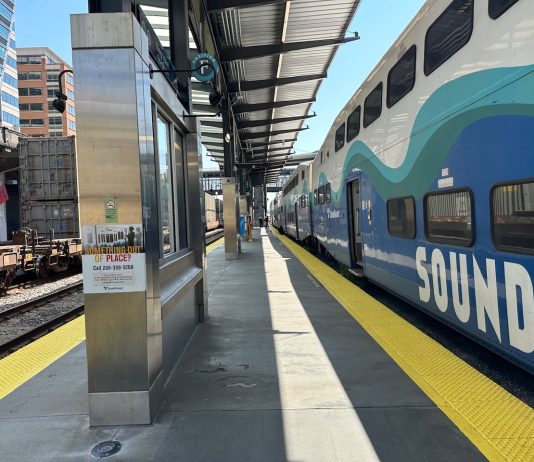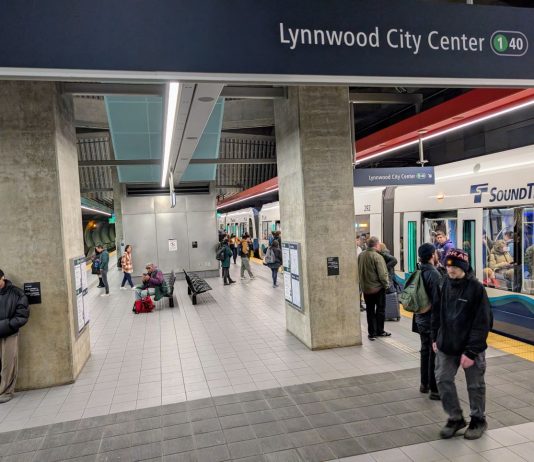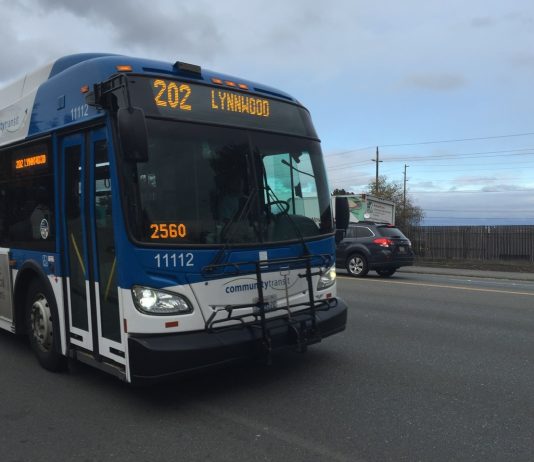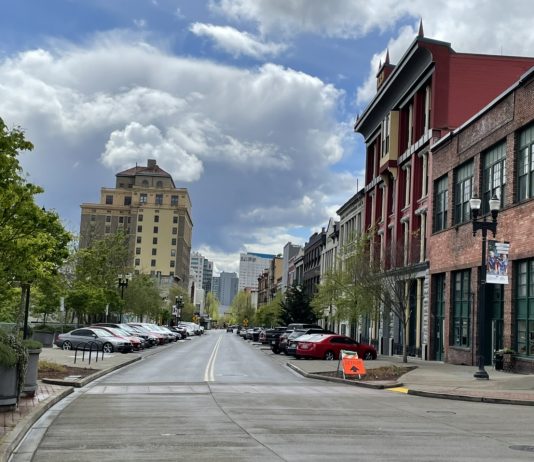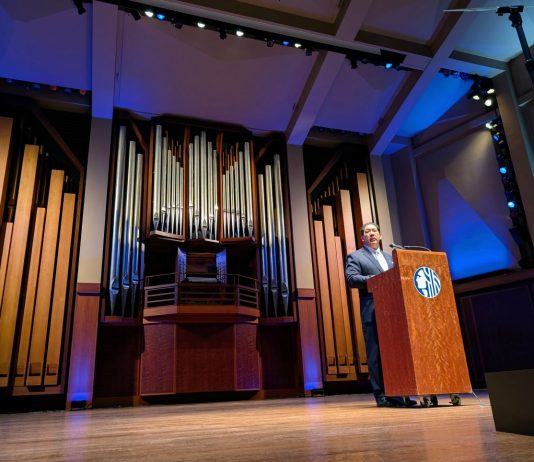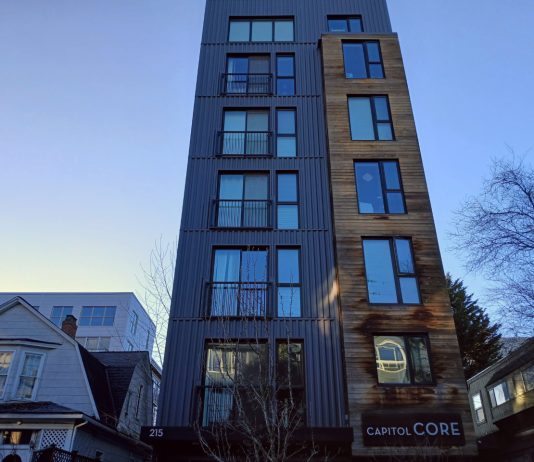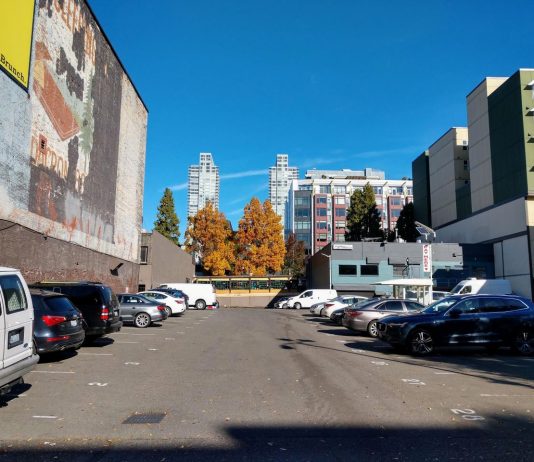Sound Transit continues to restore Sounder rail cars to service with some improvements for riders, but maintenance work by contractor Amtrak could take a while longer. That means reduce Sounder service could linger.
Seattle could meet its 30% tree canopy goal much quicker by converting a quarter of its 500,000 on-street parking spaces. The paving to planting conversion would convey many benefits, cooling neighborhoods and absorbing runoff.
Weekend service disruptions continue Sunday, February 23 on the Link 1 Line. Sound Transit will suspend light rail service between Capitol Hill and SoDo stations to facilitate maintenance and construction work, and offer replacement bus bridge service.
On Saturday, March 1, Community Transit will implement a fare change benefitting low-income riders, seniors, Medicare recipients, and disabled riders, as fares drop from $1.25 to $1.00 for these riders. Community Transit's full fare will remain $2.50.
The permanent renewal of Tacoma's Streets Initiative would enable the city to make significant progress on overhauling its most dangerous streets, and significantly expand safe bicycle infrastructure. The ballot measure goes to voters in an April 22 special election.
Seattle Mayor Bruce Harrell teased a few urbanist-minded initiatives as he delivered his annual state of the city speech on Tuesday, putting support behind a push to pedestrianize Pike Place and launched a new "Northern Lights" vision to remake Aurora Avenue. Exactly when either change would occur remains unclear.
Senate Bill 5156, approved by the Washington Senate this week, could open the door to more accessible small apartment buildings built around smaller European-style elevators, reducing overall housing costs at the same time.
Though it was amended to exclude cities with less than 20,000 residents, Senate Bill 5184 still represents one of the most robust statewide parking reform packages to move forward in any state. It now must pass the House.

